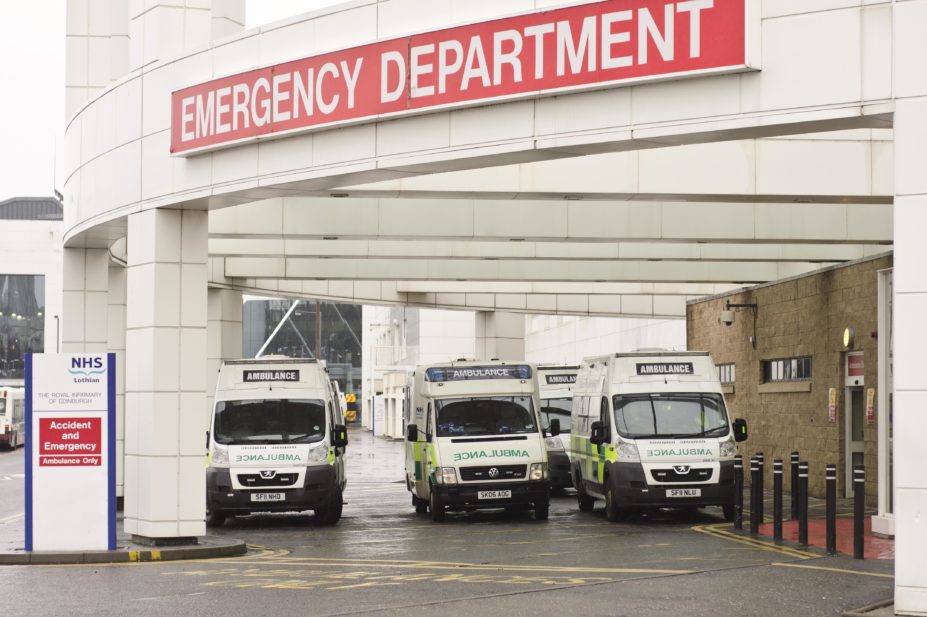
Shutterstock.com
Pharmacists are set to work alongside emergency department staff at up to 36 A&E units across England from March 2015 in an expansion of an NHS pilot programme.
Health Education England (HEE) is asking Local Education and Training Boards (LETBs) to seek expressions of interest from local NHS trusts to take part in the national emergency department pharmacy pilot initiative, part of NHS England’s urgent and emergency care review.
Trusts who respond to the call will join four others already signed up to the pilot, first announced in December 2014.
The Royal Pharmaceutical Society (RPS) said having more pharmacists working in A&E departments could help to reduce pressure on emergency care.
A&E units across the UK have faced high demand this winter and four-hour waiting time targets have been routinely missed across the four nations.
The RPS in England has called for all A&E departments to incorporate a pharmacist to manage medicines-related issues as part of its urgent and emergency care campaign.
David Branford, chair of the England Pharmacy Board at the RPS, says: “Utilising the skills, expertise and accessibility of pharmacists can significantly help to alleviate some of the pressures currently being experienced in the delivery of the urgent and emergency care. The fact that there is now solid progress through these pilots in up to a further 36 hospitals is fantastic news.”
He adds: “There are huge benefits to having a pharmacist involved at all stages of the urgent care pathway, as the results of the pilot showed. It is now time to take that evidence to be more strategic and change the services on offer to the public to make best use of the NHS workforce.”
The HEE pilot will explore the potential of clinical pharmacists working as part of a multidisciplinary approach to improve emergency care.
HEE has asked 12 out of the 13 LETBs in England to each recruit between one and three hospital trusts to take part in the pilot. The concept has already been trialled in the West Midlands region. It means that between 12 and 36 pilot sites in total will be chosen to trial this approach.
Each pilot will run for five weeks, and participating employers will nominate pharmacists from their trust to take part in the pilot. Total funding available for the programme is yet to be confirmed.
Elizabeth Hughes, director of education and quality for London and the South East at HEE, said: “These pilots are designed to identify opportunities to make effective use of pharmacists’ knowledge and skills, working with other key staff in emergency departments so that patients are seen and treated safely, effectively and in a timely manner.
“HEE will be looking to build on the West Midlands work to develop enhanced roles for pharmacists in emergency departments across the country that improve patient experience and support wider efforts to reduce waiting times.”
You may also be interested in
Long service of members

Membership fees 2022
